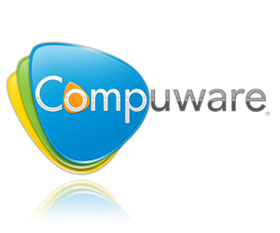Absa warns customers of banking fraud
Absa.jpg” alt=”" width=”300″ height=”300″ />With 2011 drawing to a close, Absa has urged customers to exercise vigilance when transacting this festive season.
Traditionally, banking fraud spikes over the holidays as more South Africans vacation and spend money. Customers need to be mindful of, and protect themselves against a few key scams.
Phishing
Phishing pertains to emails, purportedly sent by your bank (but in fact sent by fraudsters) requesting you to click on links and attachments, the link or attachment will lead you to a spoofed website that resembles the banks Internet Banking logon page to disclose personal information, or insert internet banking logon details.
The spoofed website will require you to type out your full password and Onetime password cell phone number. For this reason, whenever you receive an email, SMS or phone call that seems even slightly out of the norm, you should query it.
SIM swapping
In a tactic known as SIM swapping, fraudsters are illegally obtaining replacement cellular SIM cards in order to acquire the one-time passwords sent to user’s cellphones when conducting their online banking. SIM swaps are normally done by using fraudulent ID books at cellular outlets.
Though it is not always easy for the user to detect a SIM swap, a telltale sign could be permanent loss of cellphone signal for no apparent reason, in which case it is important for one to contact their network operator via an alternative means.SIM swaps are usually executed in combination with a successful phishing attempt.
Card skimming
Credit, cheque and debit cards can be used in a number of locations for a wide range of purchases, offering convenience and choice. Unfortunately card skimming and cloning is a reality and it is important to be cautious when transacting.
Card skimming devices are generally custom manufactured to fit over the card slots of some ATMs. An untrained eye will hardly notice the device attached over the ATM card slot. Criminal syndicates then use mini cameras – installed alongside the card skimming equipment – to steal customer PINs at the same time. Cards can be cloned instantly using portable encoding devices and laptops, and typically used at another ATM within 10 minutes. Unsuspecting cardholders are usually none the wiser - as far as they know their ATM visit has proceeded without a hitch, and they only become aware of the fraud when they notice suspicious activity on their account at a later stage.
There are a number of steps cardholders can take to reduce the risk of becoming a victim of card fraud. The most effective is to remain vigilant when completing a transaction at an ATM. Steer clear of secluded ATMs and try to complete your banking transactions at a sensible time of day. If you suspect a machine has been tampered with then step away and report the problem to the nearest bank.
Absa advises its clients to keep access information secure; ignore emails or SMSes if you are unsure of its source; refrain from banking at public terminals like Internet Cafes; only shop online and provide credit card details to reputable companies.
When using your card for a purchase, Absa urges customers to sign your card as soon as you receive it; not let the card out of your sight for any Point-of-Sale (POS) or other card-based purchase; review account statements on a timely basis; and immediately query any disputed transactions with your bank.


